 The United States has the highest incarceration rates of any country in the world. There are nearly two million people who are held in jails and prisons at any given time, and in many cases, these prisoners are subject to abuse and inhumane treatment. Criminal justice advocates have been calling attention to the conditions in U.S. prisons for years, and they have sought to put reforms in place to protect the rights of prisoners and focus on rehabilitation rather than punishment. In a positive sign, the person who was recently appointed as the director of the federal Bureau of Prisons is looking to implement some of these reforms.
The United States has the highest incarceration rates of any country in the world. There are nearly two million people who are held in jails and prisons at any given time, and in many cases, these prisoners are subject to abuse and inhumane treatment. Criminal justice advocates have been calling attention to the conditions in U.S. prisons for years, and they have sought to put reforms in place to protect the rights of prisoners and focus on rehabilitation rather than punishment. In a positive sign, the person who was recently appointed as the director of the federal Bureau of Prisons is looking to implement some of these reforms.
Collette Peters was named the director of the Bureau of Prisons in July of 2022. She had previously served as the director of the prison system in Oregon, where she sought to ensure that prisons were "normal and humane" while also reducing the overall prison population. She plans to implement some of these same policies in the federal prison system and focus on the rehabilitation of prisoners so that they can reintegrate into their communities after being released.
 For parents, one of the worst things to contemplate is the possibility that their children will be taken away from them. While most parents will never be in this position, those who learn that they are being investigated by child protective services will be understandably concerned about how they can protect their rights and avoid problems that will affect their families.
For parents, one of the worst things to contemplate is the possibility that their children will be taken away from them. While most parents will never be in this position, those who learn that they are being investigated by child protective services will be understandably concerned about how they can protect their rights and avoid problems that will affect their families.
When social workers knock on the door of a family's home and demand to search the premises for evidence that children have suffered abuse or neglect, parents will often be unsure about how to respond. In many cases, parents and children are subject to unfair, humiliating treatment. They may not be informed about their rights, and they may be threatened with consequences if they do not comply with all requests made by social workers.
Throughout the United States, child protective services agencies perform around 3.5 million searches of family homes each year. Most of these searches are based on reports of suspected child abuse or neglect by "mandated reporters," such as teachers, childcare providers, doctors, or police officers. However, actual instances of physical or sexual abuse of children are uncovered in only around 5 percent of all cases. This means that millions of families are subject to invasive searches and unnecessary legal proceedings that cause significant disruptions to their lives. Minorities are disproportionately affected by these issues, with Black and Hispanic families making up the majority of people who are investigated by child protective services.
 When a person is convicted of a crime, they may be sentenced to a period of electronic monitoring, or EM. This means that they will be required to wear an electronic device that tracks their movements and alerts authorities if they leave a specified area. For years, prosecutors and legislators have touted electronic monitoring as an effective alternative to prison that ensures that people comply with requirements put in place by the court while avoiding any further criminal activity. However, a recent report by the ACLU has found that electronic monitoring programs have failed to meet these goals, and they are actually more likely to result in injustice for people who have been accused or convicted of crimes.
When a person is convicted of a crime, they may be sentenced to a period of electronic monitoring, or EM. This means that they will be required to wear an electronic device that tracks their movements and alerts authorities if they leave a specified area. For years, prosecutors and legislators have touted electronic monitoring as an effective alternative to prison that ensures that people comply with requirements put in place by the court while avoiding any further criminal activity. However, a recent report by the ACLU has found that electronic monitoring programs have failed to meet these goals, and they are actually more likely to result in injustice for people who have been accused or convicted of crimes.
The use of electronic monitoring has expanded significantly over the past 20 years, increasing by 140 percent between 2005 and 2015. It has become even more prevalent in the years since the onset of the COVID-19 pandemic as officials have attempted to reduce prison populations to limit the spread of the virus. EM is regularly used during pre-trial release, for those who have been sentenced to probation, and when prisoners are released on parole. Those who are being monitored will often face restrictions on where they can go during different times, and they are subject to constant surveillance over their private lives.
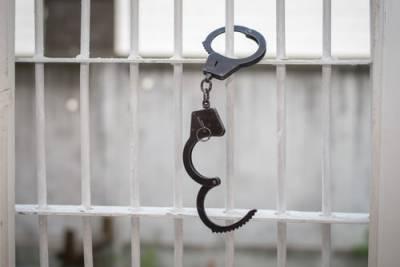 The United States has one of the most extensive prison systems in the world, with nearly two million people being held in confinement in federal and state prisons, local jails, and other correctional facilities. While the total prison population has decreased in recent years, the number of people in the U.S. who are incarcerated continues to outpace other countries. As people continue to be convicted of crimes and imprisoned, advocates have questioned whether the prison system is serving its purpose of keeping people safe. A recent book by a former editor of the New York Times and an advocate for criminal justice reform has looked at how the focus on punishing people rather than helping prevent future crimes has led to an increasingly larger prison system that does not actually improve public safety.
The United States has one of the most extensive prison systems in the world, with nearly two million people being held in confinement in federal and state prisons, local jails, and other correctional facilities. While the total prison population has decreased in recent years, the number of people in the U.S. who are incarcerated continues to outpace other countries. As people continue to be convicted of crimes and imprisoned, advocates have questioned whether the prison system is serving its purpose of keeping people safe. A recent book by a former editor of the New York Times and an advocate for criminal justice reform has looked at how the focus on punishing people rather than helping prevent future crimes has led to an increasingly larger prison system that does not actually improve public safety.
What's Prison For?, a book written by Bill Keller, looks at the issues that have led to the current system of mass incarceration in the United States. When the "war on drugs" began in the 1970s, the rates of incarceration began to increase, and this issue became worse due to laws passed in subsequent decades. The Anti-Drug Abuse Act of 1986 put mandatory minimum sentences in place for many drug crimes, as well as disproportionate punishments for offenses related to crack cocaine, resulting in many Black defendants receiving longer sentences than white offenders charged with similar crimes.
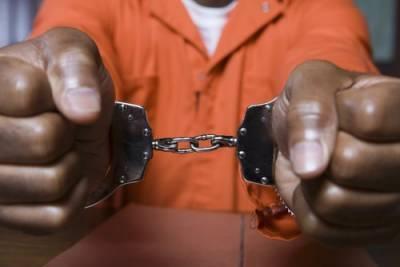 The laws in the United States are supposed to treat everyone fairly, providing "liberty and justice for all." Unfortunately, the U.S. criminal justice system often falls far short of this ideal, especially in regard to how people are treated differently based on their race. For decades, criminal justice advocates have raised awareness of the racial inequities in the system, noting that Black people are much more likely to be arrested and convicted of crimes than white people, and they also receive longer sentences. Despite knowledge of this issue, racial inequities continue to be a problem, and this has been highlighted by a recent report from the National Registry of Exonerations that has shown that Black people are much more likely to be wrongfully convicted than white people.
The laws in the United States are supposed to treat everyone fairly, providing "liberty and justice for all." Unfortunately, the U.S. criminal justice system often falls far short of this ideal, especially in regard to how people are treated differently based on their race. For decades, criminal justice advocates have raised awareness of the racial inequities in the system, noting that Black people are much more likely to be arrested and convicted of crimes than white people, and they also receive longer sentences. Despite knowledge of this issue, racial inequities continue to be a problem, and this has been highlighted by a recent report from the National Registry of Exonerations that has shown that Black people are much more likely to be wrongfully convicted than white people.
The Registry's report analyzed data related to thousands of exonerations that have occurred in the United States since 1989. While Black people only make up around 13 percent of the U.S. population, they accounted for more than 50 percent of all exonerations. Based on this data, Black people are seven times more likely to be wrongfully convicted than white people. This holds true for all categories of serious crime except those that are classified as white collar crimes. However, the report highlighted three specific types of crimes that are most likely to lead to wrongful convictions for Black defendants:
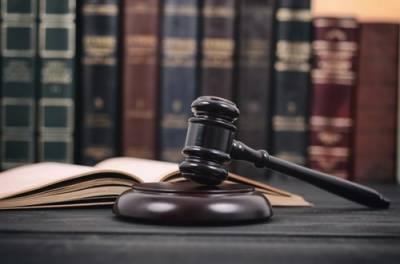 The ability to have a trial by jury is one of the fundamental rights provided to criminal defendants in the United States. The Sixth Amendment to the U.S. Constitution states that anyone who is charged with a crime has a right to a speedy trial before an impartial jury, as well as the right to be represented by an attorney and to confront witnesses that testify against them. While most people understand these rights and believe that they will be able to defend themselves in court, they may not realize how rarely jury trials actually happen.
The ability to have a trial by jury is one of the fundamental rights provided to criminal defendants in the United States. The Sixth Amendment to the U.S. Constitution states that anyone who is charged with a crime has a right to a speedy trial before an impartial jury, as well as the right to be represented by an attorney and to confront witnesses that testify against them. While most people understand these rights and believe that they will be able to defend themselves in court, they may not realize how rarely jury trials actually happen.
Over the past few decades, the number of criminal trials that take place in both state and federal courts has decreased significantly. Currently, only around 2 percent of federal criminal cases go to trial, and state-level cases follow similar trends. Instead, most cases are resolved through plea bargains in which defendants agree to plead guilty to certain charges in exchange for having other charges dropped or receiving reduced sentences. Around 94 percent of state-level felony convictions and 97 percent of federal felony convictions are the result of plea bargains.
 People who become involved in the criminal justice system are likely to face numerous difficulties. They may be accused of serious crimes, and even if they are ultimately found not guilty, the damage to their reputation and their lives can be irreparable. In many of the worst cases, people may die while in police custody, or preventable deaths may occur in correctional facilities. Over the past several decades, there have been tens of thousands of deaths that occurred while people were in the custody of law enforcement. However, the true scope of this problem is unknown due to problems with the reporting of these types of deaths to the federal government.
People who become involved in the criminal justice system are likely to face numerous difficulties. They may be accused of serious crimes, and even if they are ultimately found not guilty, the damage to their reputation and their lives can be irreparable. In many of the worst cases, people may die while in police custody, or preventable deaths may occur in correctional facilities. Over the past several decades, there have been tens of thousands of deaths that occurred while people were in the custody of law enforcement. However, the true scope of this problem is unknown due to problems with the reporting of these types of deaths to the federal government.
The Death in Custody Reporting Act (DCRA), a federal law that was passed in 2000 and updated in 2014, requires states to report the deaths of people who are held in police custody, inmates in local and state correctional facilities, and others who are killed by police officers to the Department of Justice. This law also required the DOJ to compile statistics on these deaths and make a report to Congress with recommendations on how preventable deaths may be reduced.
 Cocaine is an illegal controlled substance, and those who are found in possession of this drug may face criminal charges for drug possession or distribution. However, cocaine comes in two forms: powder cocaine and "crack" cocaine. Even though both forms of cocaine are functionally equivalent, they are treated differently in the eyes of the law. This disparity has led to harsh sentences for those who are charged with offenses related to crack cocaine, and Black people have been disproportionately affected, meaning that they are likely to be convicted and serve longer sentences.
Cocaine is an illegal controlled substance, and those who are found in possession of this drug may face criminal charges for drug possession or distribution. However, cocaine comes in two forms: powder cocaine and "crack" cocaine. Even though both forms of cocaine are functionally equivalent, they are treated differently in the eyes of the law. This disparity has led to harsh sentences for those who are charged with offenses related to crack cocaine, and Black people have been disproportionately affected, meaning that they are likely to be convicted and serve longer sentences.
Crack cocaine and powder cocaine are the same substance. Crack is created by mixing powder cocaine with water and baking soda to create "rocks" that are smoked rather than snorted. Under the Anti-Drug Abuse Act of 1986, the amount of cocaine that triggered a mandatory minimum sentence differed wildly depending on whether a person was found in possession of powder cocaine or crack. While a minimum five-year sentence would apply for someone caught with 500 grams of powder cocaine, just 5 grams of crack cocaine would result in the same sentence.
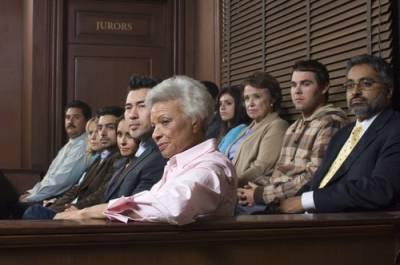 In the American criminal justice system, juries play a vital role. They are responsible for determining a defendant's guilt or innocence, and their verdicts can have far-reaching consequences. However, there may be some cases where jurors may believe that defendants have been treated unfairly, or they may seek to correct injustices and biases in the system. In the United States, juries have the power to find defendants "not guilty" even if they believe that the defendant may technically be guilty of the crime. This is called jury nullification.
In the American criminal justice system, juries play a vital role. They are responsible for determining a defendant's guilt or innocence, and their verdicts can have far-reaching consequences. However, there may be some cases where jurors may believe that defendants have been treated unfairly, or they may seek to correct injustices and biases in the system. In the United States, juries have the power to find defendants "not guilty" even if they believe that the defendant may technically be guilty of the crime. This is called jury nullification.
Jury nullification is also known as "conscientious acquittal" or "juror veto," and it can happen for a variety of reasons. In some cases, jurors may not agree with the law that the defendant is accused of breaking. For example, some juries have used nullification to acquit defendants accused of possessing small amounts of marijuana, even though marijuana possession is still technically illegal in many states. In other cases, jurors may believe that the defendant's actions, while technically criminal, did not deserve to be punished. For example, a jury may choose to nullify a criminal charge against a homeless person who stole food because they believe that the defendant was driven by necessity.
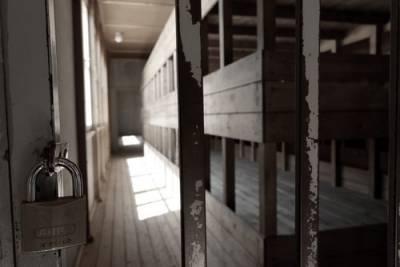 Most people are aware of the practice of solitary confinement in prisons, either from watching movies about prison or hearing about the treatment of prisoners in the news. Prisoners in the United States are routinely subjected to this form of confinement, which is also known as isolation or segregated confinement. However, this practice has been shown to cause a great deal of psychological harm, as well as physical health problems. Because of this, advocates for prisoners' rights are seeking to reduce or limit the use of solitary confinement, especially since it can be an issue that disproportionately affects minorities who become caught up in the criminal justice system.
Most people are aware of the practice of solitary confinement in prisons, either from watching movies about prison or hearing about the treatment of prisoners in the news. Prisoners in the United States are routinely subjected to this form of confinement, which is also known as isolation or segregated confinement. However, this practice has been shown to cause a great deal of psychological harm, as well as physical health problems. Because of this, advocates for prisoners' rights are seeking to reduce or limit the use of solitary confinement, especially since it can be an issue that disproportionately affects minorities who become caught up in the criminal justice system.
Solitary confinement is defined as holding a prisoner in isolation and restricting their contact with other people for at least 22 hours per day for a period of 15 days or more. In many cases, prisoners in solitary confinement are held in a small cell, with no access to natural light or fresh air. They are often denied exercise, recreation, and contact with family and friends. Lights in cells may be left on at all times, limiting a person's ability to sleep. While short periods of isolation may be necessary to protect the safety of a person or others, there are some cases where prisoners may be held in solitary confinement for weeks, months, or even years.
 50 Founders Plaza
50 Founders Plaza

